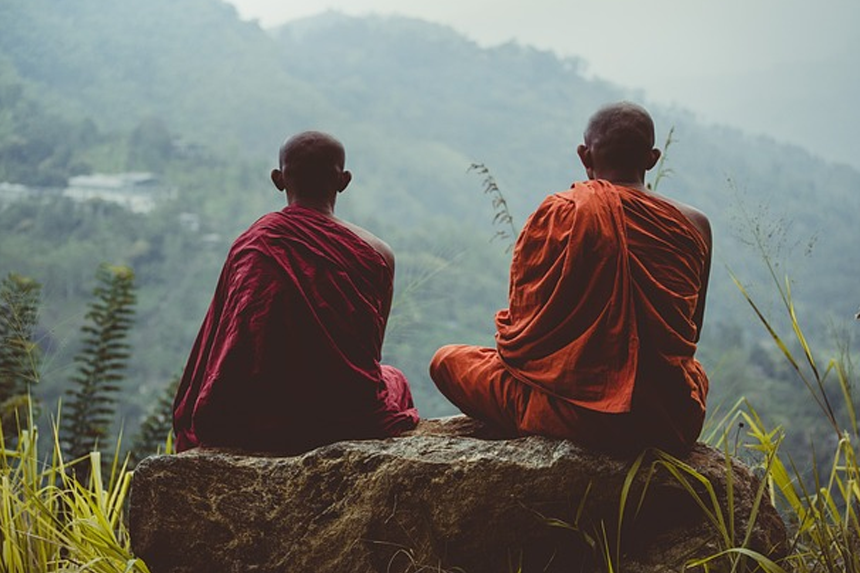A hardline Buddhist monk in Sri Lanka, Galagodaatte Gnanasara, has been sentenced to nine months in prison after being convicted for insulting Islam and inciting religious hatred. The sentence was handed down by the Colombo Magistrate’s Court, marking a rare conviction for a Buddhist monk in the country. The charges stem from derogatory remarks Gnanasara made in 2016, when he spoke at a media conference, making statements that were widely condemned for attacking Islam. This conviction highlights the importance of upholding religious freedom, particularly in a multi-ethnic, multi-religious society like Sri Lanka.piscing elit. Ut elit tellus, luctus nec ullamcorper mattis, pulvinar dapibus leo.
- What Led to Gnanasara's Conviction?
- Why Are Buddhist Monks Rarely Convicted in Sri Lanka?
- What Is the Significance of the Sentence?
- Will Gnanasara’s Appeal Affect the Sentence?
- How Is Gnanasara Linked to Former President Gotabaya Rajapaksa?
- Has Gnanasara Faced Legal Consequences in the Past?
- What Does This Sentence Mean for Religious Tolerance in Sri Lanka?
What Led to Gnanasara's Conviction?
Galagodaatte Gnanasara, a monk known for his hardline views and strong association with nationalist movements, has a long history of controversial statements. He was convicted for his remarks about Islam made during a press conference in 2016. In this conference, he made several inflammatory comments about the religion, which led to his arrest in December. Despite being a prominent figure within Sri Lanka’s Buddhist nationalist circles, he was found guilty of undermining the country’s commitment to religious freedom.
“The court reaffirmed that all citizens, regardless of religion, are entitled to the freedom of belief under the Constitution,” said a statement from the Colombo Magistrate’s Court on the day of the verdict.
Why Are Buddhist Monks Rarely Convicted in Sri Lanka?
Convicting Buddhist monks in Sri Lanka is extremely rare. This conviction marks only the second time Gnanasara has faced jail time despite his involvement in several incidents linked to hate crimes and anti-Muslim violence. While the legal system in Sri Lanka tends to be lenient when it comes to religious figures, this case signifies a shift toward holding such figures accountable for their actions. Gnanasara had been pardoned in 2019 for a prior conviction, which was related to intimidation and contempt of court. The court’s ruling is seen as a step forward in protecting religious freedom in the country.
What Is the Significance of the Sentence?
Gnanasara’s nine-month prison sentence is significant in a country where the legal system has often been seen as lenient toward Buddhist monks, particularly those with political ties. In addition to the jail term, the court imposed a fine of 1,500 Sri Lankan rupees (approximately $5 or £4). If Gnanasara fails to pay the fine, he would be subjected to an additional month of imprisonment. This ruling emphasizes the growing importance of accountability for public figures, even those in positions of religious authority, and stresses the need to uphold religious freedom for all citizens.
Will Gnanasara’s Appeal Affect the Sentence?
Gnanasara has filed an appeal against the sentence, challenging the decision made by the Colombo Magistrate’s Court. His legal team has requested that he be released on bail while awaiting a final judgment on the appeal. However, the court rejected this request, stating that Gnanasara should remain in prison until a final ruling is made on his appeal. This development suggests that the legal process will continue to scrutinize his actions, with the potential for further legal battles ahead.
How Is Gnanasara Linked to Former President Gotabaya Rajapaksa?
Galagodaatte Gnanasara has long been an ally of former president Gotabaya Rajapaksa, who was forced to resign and flee the country after mass protests erupted in 2022 due to Sri Lanka’s ongoing economic crisis. During Rajapaksa’s presidency, Gnanasara was appointed head of a presidential task force on legal reforms designed to protect religious harmony. This position gave him significant influence, though it also drew criticism for being part of a broader pattern of using religious authority to further nationalist political agendas.
Has Gnanasara Faced Legal Consequences in the Past?
This is not the first time that Gnanasara has faced legal consequences for his inflammatory rhetoric. In 2018, he was sentenced to six years in prison for contempt of court after intimidating the wife of a political cartoonist who had gone missing under mysterious circumstances. However, he served only nine months of that sentence, as he was granted a presidential pardon by Maithripala Sirisena, the president at the time. Despite his controversial actions, Gnanasara’s political ties have often shielded him from more severe punishments.
What Does This Sentence Mean for Religious Tolerance in Sri Lanka?
Gnanasara’s sentence has sparked debates about religious freedom in Sri Lanka, a country with a history of ethnic and religious tensions. His conviction, especially given his high-profile role within the Sinhalese Buddhist nationalist movement, signals the state’s growing resolve to address hate speech and ensure that all citizens, regardless of their religion, enjoy the protection of the law. As Sri Lanka continues to grapple with its diverse religious landscape, this case highlights the challenge of balancing freedom of expression with the need to preserve national unity and peace among different communities.
In the aftermath of the ruling, many are questioning whether this marks a turning point in Sri Lanka’s approach to religious freedom, and whether further actions will be taken against those who incite violence or spread hatred in the name of religion.








